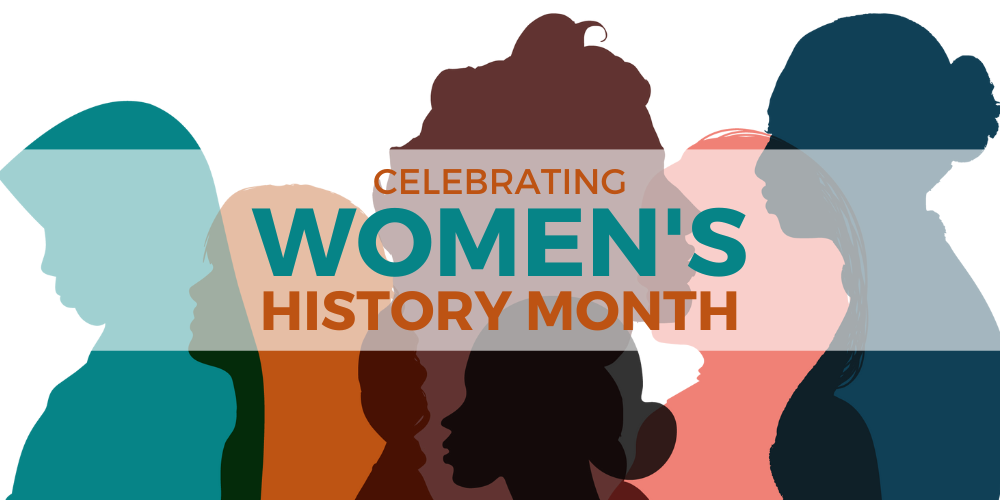Articles
Celebrate Women's History Month

March is Women’s History Month! This annual observance provides an opportunity to acknowledge the vital role women have played throughout history and continue to play in shaping our society today. Women have been trailblazers in advocating for social and political change to advancing in the workforce, breaking down barriers, and beyond. This year’s theme set by The National Women’s History Alliance (NWHA) is, “Women Who Advocate for Equity, Diversity, and Inclusion.” The theme honors women throughout the county, “who understand that, for a positive future, we need to eliminate bias and discrimination entirely from our lives and institutions. It takes courage for women to advocate for these practical goals when established forces aim to misinterpret, exploit, or discredit them."
Throughout this month, we encourage you to take time to reflect on the achievements of women and honor the important contributions they have made to our society. We also encourage you to reflect on the challenges that women still face and find ways to uplift, support, and empower women in all spaces. Below you will find descriptions of a few of the many women in history with different backgrounds who are considered to have made significant contributions.
Women 1sts
- Patsy Mink was the first woman of color and Asian-American woman to be elected to Congress. She co-authored the Title IX legislation, prohibiting sex discrimination in education.
- Wilma Mankiller was the first female chief of the Cherokee Nation and improved healthcare, education, and economic development for her tribe.
- Jane Bolin was the first black woman to graduate from Yale Law school and become a Judge in the United States. She advocated tirelessly for children’s and women’s rights.
- Dolores Huerta is the co-founder of the United Farm Workers Association and is considered one of the most influential activists in labor development and worker’s rights and worked closely with Cesar Chavez.
- Donna Shalala is the first Arab-American woman to serve in a cabinet position. While she was the Chancellor at the University of Wisconsin Madison, she implemented the “Madison Plan”, which focused on recruiting greater numbers of minority students and faculty members.
- Find out about the wide world of history makers at www.history.com
Join us as we celebrate these accomplishments and turn to a few community resources for learning and engagement compiled by the NWHA below.
Community Partnerships and Resources
- Partner with local women's organizations and community groups to create events or workshops centered around women's history. This fosters community engagement and strengthens the connection between schools and local resources.
- Investigate your community for items that represent women’s contributions to history. Plan trips to local museums, historical sites, and landmarks that highlight women's contributions to the community.
- Check out the public library. There may be oral histories from people living in the past with the tapes or transcripts on file at the library.
- Is there a local historical society? If so, the students might be able to visit. There may be diaries or letters by women that are on file there. Photographs would be enormously interesting to people of all ages.
- Organize a panel with women representing diverse professions and backgrounds.
Media Resources
Women’s History Month Resources at the Library of Congress
Books to Celebrate Women’s History Month from the New York Public Library
Check out GoodGoodGood’s 36 Activities to Celebrate Women’s History Month
Tagged:

